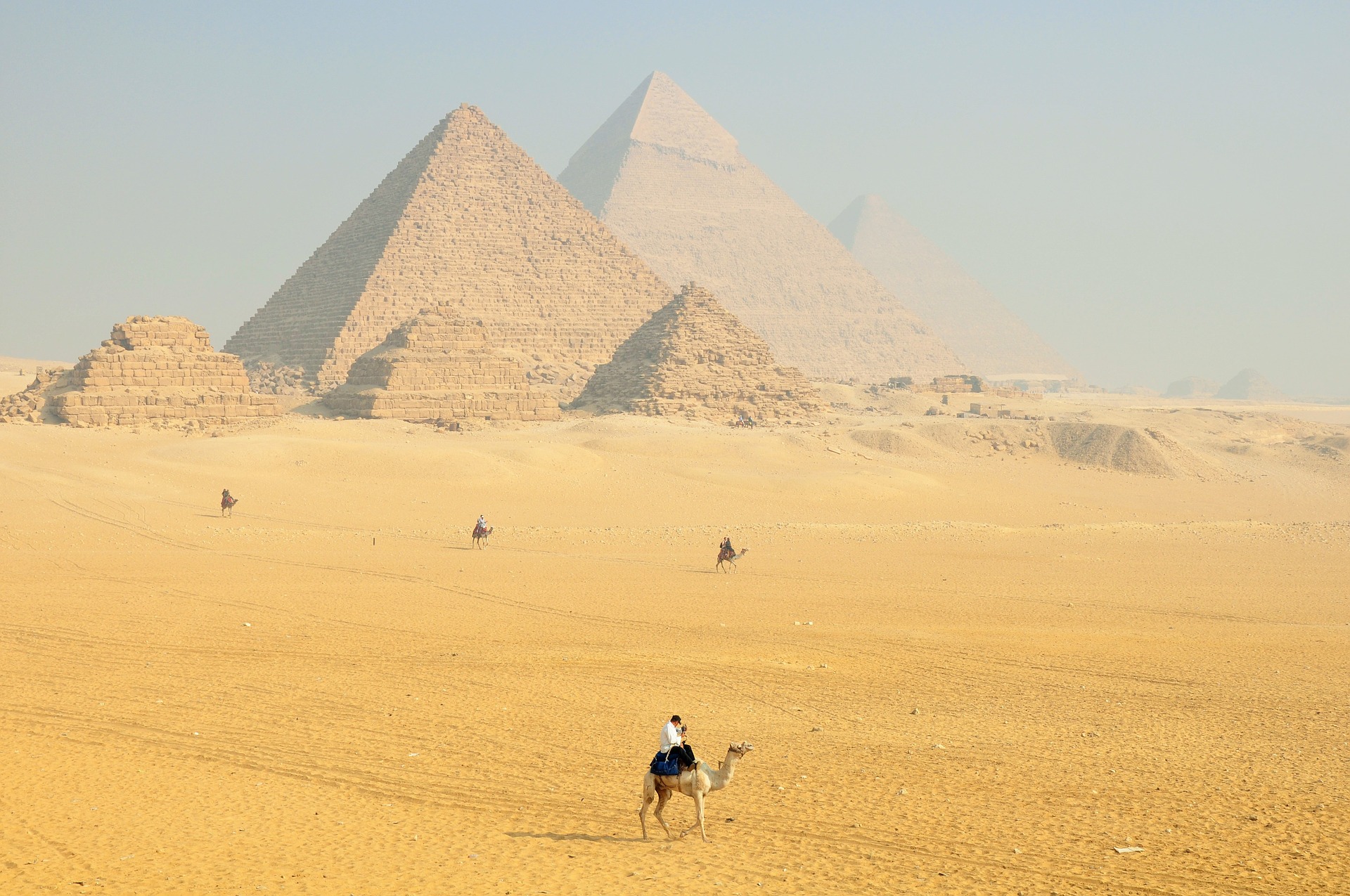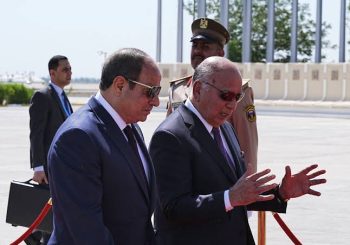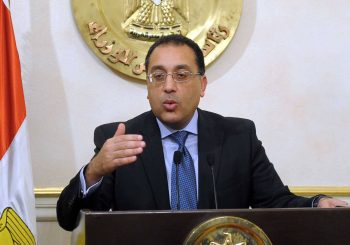Last year in late 2020, I, along with a group of friends, travelled to Luxor in the south of Egypt for a Nile Cruise. While the train to Luxor from Alexandria was packed full of people, the cruise was comparably empty. Each day, we would disembark the cruise and visit some of the ancient world’s most reputed sights with few other travellers in sight. Save for the odd scattered Egyptian groups and sometimes a few foreigners, we would wander around uninterrupted. No queue for a photo in front of an obelisk, sphinx or tomb, and, apart from our phones, no clicking and flashing of cameras anywhere.
Our local guide, in between effortlessly reading hieroglyphs straight from the walls, tried to convey to us how lucky we were.
“It is normally so filled with people,” he said, “I have never seen it so empty.”
We were extremely lucky indeed. However, in reality, our good fortune was a very stark sign of the great misfortune that has beset the entire tourism industry in Egypt since the spread of COVID-19 in early 2020.
In 2019, Egypt attracted over 13 million foreign visitors, the highest number in Africa and the third highest in the Middle East. In real terms, this contributed over USD 13 billion in revenue, or 4.2 percent of Egypt’s overall Gross Domestic Product (GDP). At the time, the industry employed 2.4 million Egyptians, making it a lifeline for millions of families across the country.
Then came COVID-19. In the space of a year, almost 850,000 people lost their jobs and the sector’s contribution to Egypt’s GDP more than halved. The industry was devastated.
Problems, at home and abroad
I first met Joe Samy, co-founder of iEgypt, in October 2020. With an entrepreneurial spark and high energy, Joe was juggling a full-time job in a Cairo hostel, co-running a tourism start-up, and finishing his business and commerce degree in Zamalek.
During a recent Zoom interview with Egyptian Streets, Joe and the co-founder iEgypt Mohammed Ali, explained—after much reminiscing and minor disagreements—how they started working together on a plan to start running tours after they had met through an online community for hosting foreign travellers called ‘CouchSurfing’ a few years ago.
For a while they spoke about starting to run tours around Egypt for both international and local travellers and sightseers for a year until last year they decided to put their plans in motion.
“So, we met again in April 2020,” Joe started explaining, “we met, and the streets were empty, no cafes, no humans, nothing.”
Ali, who is much calmer and quieter than his namesake suggests, nods and, smiling, says “Yes, we were sitting on a car.”
“That is where we founded iEgypt,” concluded Joe.
Across the world, everything was shut down and borders were starting to close; , the entire tourism industry was looking on in horror, but Ali and Joe (along with a third co-founder Mou Sobhy) pressed on unfazed with their launch of iEgypt as Egypt opened up from a strict curfew and lockdown in early summer, 2020. Since then, they have run dozens of tours, mostly for domestic travellers.
Ahmed Abdullah, a director at Rhapsody Travel in Alexandria, was less positive about the pandemic.
“We incurred very large losses during the period of the [pandemic],” said Abdullah, who has worked in tourism since 2001. “[The] pandemic has greatly affected the numbers of tourists coming from outside Egypt, as well as local customers.”
While the effects of COVID-19 on international tourism could easily be predicted, there has also been a painful tailing off of domestic customers, which has only rubbed salt into a very open wound for the industry. In 2017, domestic tourists accounted for 48 percent of the industry’s income, and, while it is easier for domestic tourists to travel around the country without the international travel restrictions, numbers are still down overall. Abdullah blames a “constant fear that still exists so far in Egypt,” and its population, about the ongoing pandemic. People are also spending less, whether that means spending less when on holidays, or forgoing holidays altogether.
Effects of the wider economy
With tourism representing such a significant portion of Egypt’s economy, this sudden hit has reverberated throughout the wider economy and society. According to one report by the International Food Policy Research Institute (IFPRI), the losses from the collapse of tourism, when combined with the reduction in traffic through the Suez Canal and remittance (money sent home by Egyptians abroad) could cause the Egyptian economy to contract by up to 4.8 percent.
This is having a real term impact on lives across Egypt, especially disadvantaged communities across Egypt. Apart from the effects of hundreds of thousands of job losses in the industry, the contraction in the economy could lead to a significant reduction in the average household income over the course of the pandemic.
As Egypt was in a rebuilding process following the economic chaos caused by the 2011 and 2013 uprisings, which also disproportionately affected the tourism industry, the pandemic has tested the industry to its limits, but perhaps also showed its resilience.
The ‘bounce back’
In 2010, Egypt welcomed more foreign tourists than any other year in history. In 2011, when the revolution erupted, foreign travel collapsed and revenues (in USD billions) stayed in single figures throughout the following years of uncertainty. However, as stability slowly came back in the eyes of the world, so did international travellers. And they did so with wallets more open than ever. In fact, despite there being over a million fewer travellers in 2019 than in 2010, their total spending was up by half a billion.
Although total spending by tourists for 2021 is not expected to surpass USD seven billion, Khaled Al-Anani, Egypt’s Minister of Tourism and Antiquities, recently stated that the government expects to return to ‘pre-COVID-19 levels’ by the end of 2022, much faster than it did after the revolution. This could be driven by a post-pandemic economic ‘boom’, which many economists are predicting, combined with the ‘cabin fever’ many people are feeling having been denied international trips over the last year and a half, this boom could work strongly in the favour of Egypt’s tourism industry.
Egypt has also very publicly poised itself as open for tourism recently, with the planned opening of the new Grand Egyptian Museum–the largest archaeological museum in the world–later in 2021. In April of 2021 Egypt held the internationally covered, multimillion dollar Pharaohs’ Golden Parade, transporting mummies from the old Egyptian Museum to their new home in the National Museum of Egyptian Civilisation in Fustat, with President Abdel Fattah El Sisi making several appearances himself throughout the event.
The government is also acting to vaccinate hospitality staff in resorts around the red sea, which attract a wealth of foreign visitors each year.
In Alexandria, Rhapsody Travel’s Ahmed Abdullah is cautious.
“I hope that the situation will improve by the end of this year and at the beginning of next year.”
Joe and Ali are more optimistic. Now that he has finished university, Joe is hoping to devote more time to the business, and wants to expand it. He envisions moving into more permanent offices with “departments for [domestic] travellers, and departments for foreigners,” and foreign travel. He also put forward the idea of a central hostel or hotel as a hub for clients.
As we came to the end of our call and we started to say our goodbyes, another task came up in Joe’s incredibly busy day, this one more domestic.
“I need to go,” he waved, “I said I’d make my mum lunch.”






Comments (3)
[…] أن العديد من القطاعات خاصة السياحة والطيران المدني ، عانى خسائر كبيرة على مدى العامين […]
[…] further emphasized that many sectors, particularly tourism and civil aviation, suffered significant losses over the past two […]